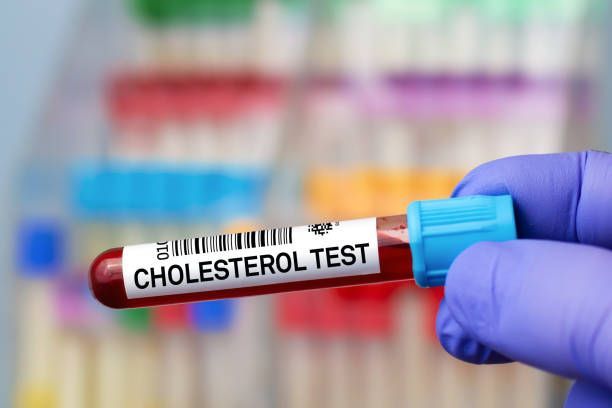Finding Immediate Medical Help: Your Ultimate Guide to Locating the Best Urgent Care Near You
Finding Immediate Medical Help: Your Ultimate Guide to Locating the Best Urgent Care Near You
In times of illness or injury, it's essential to have access to immediate medical help. However, finding the best urgent care near you can be a daunting task, especially when you're in a hurry. That's why we've created the ultimate guide to help you locate the perfect urgent care facility quickly and efficiently.
Whether you need prompt treatment for a minor ailment or require urgent medical attention, this guide will walk you through the steps of finding the best urgent care near your location. We understand the importance of finding a trustworthy healthcare provider who can address your medical needs promptly and professionally.
With our comprehensive guide, you'll discover valuable tips and resources for finding the top urgent care centers in your area. We'll also provide insights into what to look for when selecting an urgent care facility and how to ensure you receive the best possible care.
Don't waste precious time searching endlessly for the right urgent care near you – let our guide be your go-to resource for locating immediate medical assistance.
Understanding Urgent Care
Urgent care centers are medical facilities that provide immediate medical attention for non-life-threatening conditions. They are an excellent option when you need prompt medical care but don't require a visit to the emergency room. Urgent care centers are equipped to handle a wide range of ailments, from minor injuries to illnesses that require immediate attention.
These facilities are staffed by healthcare professionals, including doctors, nurses, and medical assistants, who are trained to provide urgent medical care. Urgent care centers typically have extended hours, including evenings and weekends, making them convenient for those who need medical assistance outside of regular business hours.
When you visit an urgent care center, you can expect shorter wait times compared to emergency rooms, making them an attractive option for those seeking immediate medical attention without the long hours of waiting. However, it's important to note that urgent care centers are not equipped to handle life-threatening emergencies. In such cases, it's crucial to call emergency services or visit the nearest emergency room.
When to Go to Urgent Care Instead of the Emergency Room
While emergency rooms are essential for life-threatening emergencies, many medical situations can be addressed at an urgent care center. Understanding when to go to urgent care instead of the emergency room can save you time and money, while still ensuring you receive appropriate medical care.
Urgent care centers are suitable for conditions such as minor injuries, cuts, and burns, sprains and strains, cold and flu symptoms, minor infections, allergies, and minor asthma attacks. These centers can also provide diagnostic services, such as X-rays and lab tests, and offer vaccinations and routine physical exams.
However, there are situations when a visit to the emergency room is necessary. These include severe chest pain or difficulty breathing, signs of a stroke, severe burns, head injuries, severe allergic reactions, and any other life-threatening conditions. In such cases, it's crucial to call emergency services or head to the nearest emergency room immediately.
Benefits of Choosing Urgent Care Over Other Healthcare Options
When it comes to seeking immediate medical help, urgent care centers offer several benefits over other healthcare options. One of the primary advantages is the shorter wait times compared to emergency rooms. Urgent care centers prioritize patients with non-life-threatening conditions, ensuring that you receive prompt medical attention.
Additionally, urgent care centers are often more affordable than emergency rooms. The cost of care at an urgent care center is typically lower than that of an emergency room visit, making it a cost-effective option, especially for those without health insurance or with high deductibles.
Another benefit of urgent care centers is their extended hours of operation. Many urgent care centers are open during evenings and weekends, allowing you to seek medical attention outside of regular business hours. This convenience is especially valuable when you or a loved one falls ill or gets injured outside of typical doctor's office hours.
Furthermore, urgent care centers provide a wide range of services, including diagnostic tests, vaccinations, and routine physical exams. This comprehensive approach to healthcare allows you to address multiple medical needs in one visit, saving you time and ensuring you receive comprehensive care.
How to Find the Best Urgent Care Near You
Now that you understand the benefits of choosing urgent care and when it's appropriate to visit an urgent care center, let's explore how you can find the best urgent care near your location. The following tips and resources will help you streamline your search and locate the most suitable urgent care facility.
Online Tools and Resources for Locating Urgent Care Centers
The internet is a valuable resource when it comes to finding urgent care centers near you. Several online tools and resources can help you locate the closest and most highly-rated urgent care facilities. These resources include:
- Google Maps: One of the simplest ways to find urgent care centers near your location is by using Google Maps. Simply enter "urgent care near me" in the search bar, and Google Maps will display a list of nearby urgent care facilities along with their ratings and reviews.
- Urgent Care Association (UCA) website: The Urgent Care Association's website provides a search feature that allows you to find accredited urgent care centers in your area. You can filter your search based on location, services provided, and other criteria to find the most suitable options.
- Healthcare review websites: Websites such as Yelp, Healthgrades, and Zocdoc offer patient reviews and ratings for healthcare providers, including urgent care centers. These reviews can provide valuable insights into the quality of care provided by different facilities.
- Health insurance provider's website:
If you have health insurance, your provider's website may have a search feature that allows you to find in-network urgent care centers. Using in-network providers can help you save on out-of-pocket costs.
By utilizing these online tools and resources, you can quickly narrow down your options and find the best urgent care center near your location.
Factors to Consider When Choosing an Urgent Care Facility
While online tools can help you identify potential urgent care centers, it's important to consider several factors before making a final decision. These factors can help you determine if a particular urgent care facility is the right fit for your needs.
- Location: Consider the proximity of the urgent care center to your home or workplace. Opting for a facility that is conveniently located can save you time and reduce the stress of traveling long distances, especially when you're not feeling well.
- Operating hours: Check the operating hours of the urgent care centers you are considering. Choose a facility that aligns with your schedule, including evenings and weekends if necessary.
- Services offered: Evaluate the services provided by each urgent care center. Look for facilities that offer the specific services you may require, such as X-rays, lab tests, vaccinations, and routine physical exams.
- Staff qualifications: Research the qualifications and credentials of the healthcare professionals working at the urgent care center. Ensure that the center has licensed physicians and experienced staff who can provide quality care.
- Insurance acceptance: If you have health insurance, confirm whether the urgent care center accepts your insurance plan. Choosing an in-network provider can help minimize your out-of-pocket expenses.
By considering these factors, you can narrow down your options and choose the urgent care facility that best meets your needs.
Questions to Ask When Calling or Visiting an Urgent Care Center
Once you have a shortlist of potential urgent care centers, it's a good idea to call or visit them to gather more information. Asking the right questions can help you assess the quality of care provided and determine if the urgent care center is a good fit for your needs. Here are some questions to consider:
- What are your operating hours? Inquire about the center's hours of operation, including weekdays, weekends, and holidays. Ensure that their hours align with your schedule.
- Are you accepting new patients? If you haven't visited the urgent care center before, ask if they are accepting new patients. Some centers may have restrictions or require pre-registration.
- What services do you provide? Ask about the range of services offered by the urgent care center, such as diagnostic tests, vaccinations, and routine physical exams. Confirm that they can address your specific medical needs.
- Do you have on-site laboratory and imaging services? If you require diagnostic tests such as X-rays or lab work, inquire if the urgent care center has these services available on-site. This can save you time and avoid the need for additional appointments.
- What is the average wait time? While urgent care centers generally have shorter wait times compared to emergency rooms, each facility's wait time may vary. Ask about their average wait time to gauge how long you may need to wait for medical attention.
- Do you accept my insurance? If you have health insurance, confirm whether the urgent care center accepts your insurance plan. Inquire about any co-pays, deductibles, or out-of-pocket expenses you may incur.
Asking these questions will help you gather essential information and make an informed decision about which urgent care center to choose.
What to Expect During Your Visit to an Urgent Care Center
Knowing what to expect during your visit to an urgent care center can help alleviate any anxiety and ensure a smooth experience. Here's what you can typically expect when you visit an urgent care facility:
- Check-in process: Upon arrival, you will need to provide your personal and insurance information at the front desk. Depending on the center, you may need to fill out some paperwork or complete electronic forms.
- Triage: After checking in, a healthcare professional will assess the urgency of your condition. They will ask about your symptoms and medical history to determine the appropriate course of action.
- Medical examination: Once triaged, you will be taken to an examination room where a healthcare provider, such as a doctor or nurse practitioner, will examine you. They will ask further questions, conduct a physical examination, and order any necessary tests.
- Diagnostic tests: If you require diagnostic tests, such as X-rays or lab work, these will be conducted either on-site or at a nearby facility, depending on the capabilities of the urgent care center.
- Treatment: Based on the medical examination and diagnostic results, the healthcare provider will recommend a treatment plan. This may include prescribing medication, providing wound care, or offering other necessary treatments.
- Follow-up: Before leaving the urgent care center, make sure you understand any post-visit instructions or prescriptions provided by the healthcare provider. If necessary, schedule a follow-up appointment or make arrangements for any further care.
By knowing what to expect during your visit, you can better prepare yourself and make the most of your time at the urgent care center.
Common Services Provided by Urgent Care Centers
Urgent care centers offer a wide range of medical services to address various non-life-threatening conditions. Some of the common services provided by these facilities include:
- Treatment for minor injuries: Urgent care centers can handle minor injuries such as cuts, burns, sprains, strains, and minor fractures. They can provide wound care, splinting, and other necessary treatments.
- Treatment for illnesses: Urgent care centers can diagnose and treat common illnesses such as colds, flu, sinus infections, strep throat, urinary tract infections, and ear infections. They can prescribe medications and offer symptom relief.
- Diagnostic tests: Many urgent care centers have on-site laboratory and imaging services. They can perform X-rays, blood tests, urine tests, and other diagnostic procedures to aid in the diagnosis of various conditions.
- Vaccinations: Urgent care centers often provide vaccinations, including flu shots, tetanus shots, and travel vaccines. They can help ensure you and your family are up to date on immunizations.
- Routine physical exams: Some urgent care centers offer routine physical exams for employment, school, or sports participation. These exams may include screenings, vaccinations, and overall health assessments.
By providing these services, urgent care centers play a crucial role in providing immediate medical care for a wide range of non-emergency conditions.
Conclusion: The Importance of Knowing Where to Find Immediate Medical Help
In times of illness or injury, knowing where to find immediate medical help is essential. Urgent care centers offer a convenient and efficient way to receive prompt medical attention for non-life-threatening conditions. By understanding the benefits of choosing urgent care over other healthcare options and utilizing online tools and resources, you can quickly locate the best urgent care center near your location.
Consider factors such as location, operating hours, services offered, staff qualifications, and insurance acceptance when choosing an urgent care facility. Asking the right questions when calling or visiting the center will further help you assess the quality of care provided and ensure it aligns with your needs.
During your visit to an urgent care center, expect a streamlined check-in process, triage, medical examination, and potentially diagnostic tests. The healthcare provider will recommend a treatment plan based on their evaluation, and you will receive any necessary medications or treatments.
By being aware of the common services provided by urgent care centers and understanding when to choose urgent care over the emergency room, you can make well-informed decisions about seeking immediate medical help.
Remember, finding the best urgent care near you doesn't have to be overwhelming. With our ultimate guide as your go-to resource, you can confidently locate the perfect urgent care facility to address your medical needs promptly and professionally.













